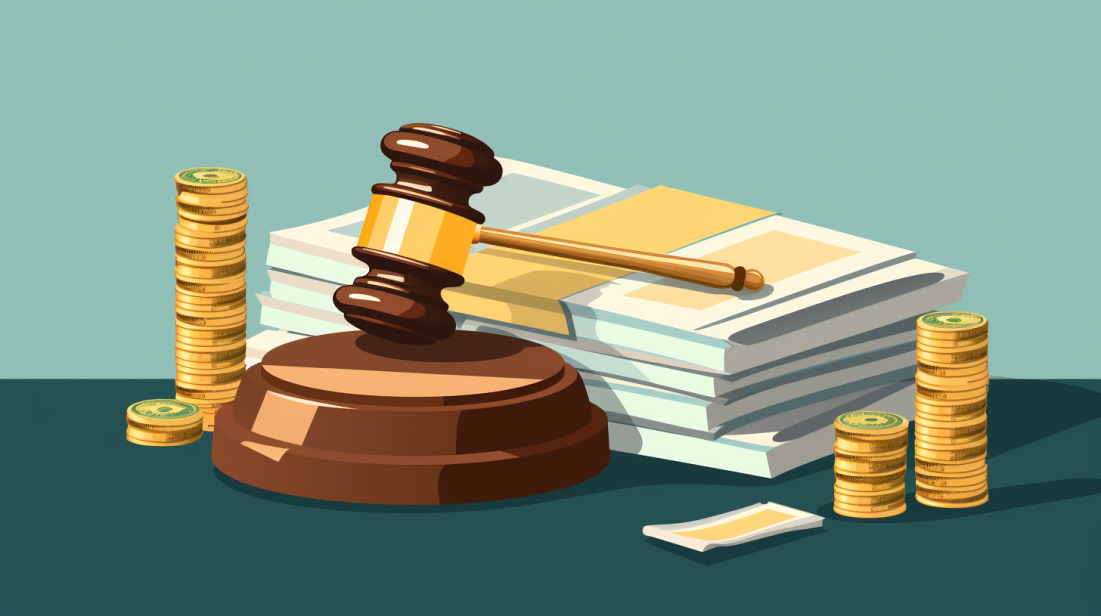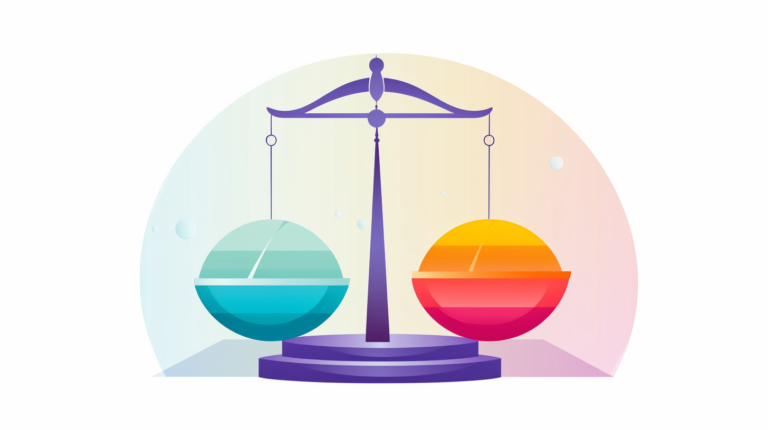How to Get Help for Unpaid Tax Debt

Key Takeaways
- Tax debt is money you owe to the IRS. It can lead to big problems like extra fees, wage cuts, and house liens.
- There are ways to help with tax debt. These include payment plans and offers in compromise from the IRS.
- A good tax relief company helps lower your debt. They talk to the IRS for you and set up a plan that fits your needs.
- If you can’t pay taxes, options like “Currently Not Collectible” status or bankruptcy may work for you.
Understanding Tax Debt
When it comes to tax debt, it refers to the amount you owe to the IRS after failing to fully pay your taxes on time. It’s crucial to understand that neglecting this debt can lead to severe consequences, such as garnished wages, levied properties, and a negative impact on your credit score.What is tax debt?
Tax debt is money that you owe to the IRS. It can happen if you make mistakes on your tax forms or don’t pay enough. If you miss to report all of your earnings, this can also lead to a tax debt.Consequences of owing the IRS
If you owe the IRS, bad things can happen. Money problems may start to grow. First, they will put a charge on your money called interest. This makes your bill bigger every day you don’t pay it back. Then they can add more charges known as tax penalties. If you still don’t pay what you owe, the IRS might get even tougher with wage garnishments or property liens. Wage garnishment means taking cash straight from your paycheck before it reaches you! Property lien is when they say part of your house belongs to them until you clear your debt. You could also face trouble if applying for loans since owing the IRS hurts your credit score.Common Tax Relief Options
 The IRS provides several tax relief options, including its installment plans that allow you to break down your owed taxes into more manageable monthly payments. An Offer in Compromise could be a viable solution, where the IRS agrees to settle for less than the full amount due if they believe it’s all you can reasonably afford. If you’re facing severe financial hardship, obtaining “currently-not-collectible” status may temporarily halt collection efforts by the IRS. Lastly, penalty abatement might be accessible if this is your first time falling behind on paying taxes; it gives room to reduce or eliminate certain penalties tied to unpaid tax debt.
The IRS provides several tax relief options, including its installment plans that allow you to break down your owed taxes into more manageable monthly payments. An Offer in Compromise could be a viable solution, where the IRS agrees to settle for less than the full amount due if they believe it’s all you can reasonably afford. If you’re facing severe financial hardship, obtaining “currently-not-collectible” status may temporarily halt collection efforts by the IRS. Lastly, penalty abatement might be accessible if this is your first time falling behind on paying taxes; it gives room to reduce or eliminate certain penalties tied to unpaid tax debt.IRS payment or installment plans
I want to tell you about IRS payment or installment plans. These are ways to take care of your tax debt.- An IRS payment plan lets you pay your tax bill over time.
- It’s a good choice if you can’t pay all at once.
- Setup fees for this plan may get waived for lower – income folks.
- Not filing your taxes? A late fee may slap you.
- But, there is a way out called penalty abatement. With this, the IRS can cancel the fee.
- You must ask the IRS to do it though.
- The more time passes, the more money you owe because interest piles up fast!
- So, it’s good to start an installment plan as soon as possible.
- Payments can be set up online or by mail through the IRS website.
- Remember, keeping up with payments is key to avoid more fees and interest.
Offer in compromise
An offer in compromise is a deal you can make with the IRS. It lets you pay less than what you owe for your back taxes. But, it’s hard to qualify for this plan. It may be best if your tax debt is more than $10,000 to ask for help from a pro. You should know that until the IRS says yes to your offer and you have paid all, they can keep or start tax liens. This means they might take money from things like your house or car sale.“Currently-not-collectible” status
If you can’t pay your taxes and your living costs, help is here. You may ask the IRS for a “currently-not-collectible” status. This means the IRS agrees to hold off on collecting your tax debt for a while. But, it does not mean you no longer owe money. During this time, you’re safe. The IRS won’t seize money from your bank account or pay check. But they might file a tax lien against you. A tax lien gives them claim over your property if there’s any sale in future.Penalty abatement
Penalty abatement is a way to lessen tax debt. You can ask the IRS to cut or remove the fines they gave you for not paying taxes on time. But, you must show a good reason why you could not pay your taxes when due. Illness, bad weather damage, or money problems may be good reasons. The IRS doesn’t just give penalty abatements though. You have to ask in the right way and follow their rules.Working with Tax Relief Companies
 Navigating through tax debt can get overwhelming, but working with reputable tax relief companies eases this burden by negotiating on your behalf or guiding you towards the best possible solution. Delve deeper into how these experts use their knowledge of IRS workings to expedite and optimize your resolution process, giving you a quicker path to financial freedom.
Navigating through tax debt can get overwhelming, but working with reputable tax relief companies eases this burden by negotiating on your behalf or guiding you towards the best possible solution. Delve deeper into how these experts use their knowledge of IRS workings to expedite and optimize your resolution process, giving you a quicker path to financial freedom.How tax relief companies can help
Tax relief companies help a lot. They talk to the IRS for you. These talks set up payment plans if you owe tax debt. Sometimes, they can even bring down your tax debt. They also know a lot about tax laws and share that knowledge with you. But first, try to fix your tax problems on your own by talking directly to the IRS before calling a tax relief company for help.Choosing the right tax relief company
Picking the right tax relief company is key. The best firms have good records. They do what they promise and don’t ask for cash up front. Some may be tax pros or lawyers that can help with tough cases. Always look at skills, history, and cost before you pick a firm. Don’t rush your choice because it’s an important step. A good company can help lower your debt to the IRS and make payment easier for you. But bad ones could waste your time or take your money without helping much.Uncommon Tax Relief Programs
 Diving deeper into tax relief, we’ll explore less-known programs like Innocent Spouse Programs and Currently Not Collectible status that could be highly beneficial for your unique situation. With the right knowledge, you can navigate through these complex waters with confidence – so keep reading to learn more about these unconventional solutions.
Diving deeper into tax relief, we’ll explore less-known programs like Innocent Spouse Programs and Currently Not Collectible status that could be highly beneficial for your unique situation. With the right knowledge, you can navigate through these complex waters with confidence – so keep reading to learn more about these unconventional solutions.Innocent Spouse Programs
The IRS has a program for spouses who did not know about a tax debt. This program is the Innocent Spouse Program. If your partner hid their tax problems, you might get help with this relief option. There are two types of aids: separation of liability and equitable tax relief. But there’s one thing to note – you must apply within two years of when the IRS first tries to gather unpaid taxes!Statute of Limitations
The IRS has ten years to collect taxes, interest, and penalties. This is known as the Statute of Limitations. Once this time runs out, the IRS can’t try to get these funds from you anymore. It starts when the IRS says you owe them money. Be aware that in some cases, this period may pause or extend.Currently Not Collectible
“Currently Not Collectible” is a good option if you can’t afford to pay your taxes. You need to show the IRS you have low income or high costs. The IRS will stop asking for money for a while. But this doesn’t mean you don’t owe tax anymore. It’s just a break from having to pay it right now. This way, you get more time to fix your money issues. The Fresh Start program can give you “Currently Not Collectible” status if you are in debt with unpaid taxes.Understanding Bankruptcy and Tax Debt
While bankruptcy may seem like an extreme measure, it’s important to fully understand how it can help alleviate tax debt under the right circumstances.When does bankruptcy work for tax debt?
Bankruptcy might be an option for tax debt. It works in some cases, but not always. Both Chapter 7 and Chapter 13 bankruptcies can wipe out your tax debts, but only under certain rules. Your taxes must be income taxes. Other types of taxes like payroll taxes or fraud penalties cannot go away with bankruptcy. Also, you should have filed a tax return for the debt you wish to erase at least two years before filing for bankruptcy. Another rule is that the due date for filing those returns was at least three years ago, plus any extensions granted on the return deadline need to pass too. Finally, you can’t file if the IRS assessed your income tax debt in the last 240 days.Other Considerations for Unpaid Tax Debt
 Your unpaid tax debt doesn’t just affect your relationship with the IRS; it can also gobble up your credit score and lead to a tax lien or levy on your property. Dive into understanding these impacts and exploring solutions like removing liens, protecting assets, and mitigating financial consequences in the next section of our guide.
Your unpaid tax debt doesn’t just affect your relationship with the IRS; it can also gobble up your credit score and lead to a tax lien or levy on your property. Dive into understanding these impacts and exploring solutions like removing liens, protecting assets, and mitigating financial consequences in the next section of our guide.Impact on credit score
Not paying your tax debt hurts your credit score. A lower score makes it hard to get loans or other types of credit. The IRS may put a tax lien on your report if you don’t pay taxes on time. This drops your score even more! But there is good news too! Taking part in a tax relief plan can help fix this problem over time. You could use an installment deal or an offer to pay less than you owe. Both options can slowly repair your credit score and bring back financial health. Be careful, though — not all companies that promise tax relief can be trusted! Always pick one that has proven its worth by helping others like you before.Removing tax liens and levies
Tax liens and levies can be removed. The Fresh Start program is a good choice for this. You can pay off your tax debt with an IRS payment plan. This lets you take away tax liens and levies over time. Or, you may want the offer in compromise. It lets you settle your tax debt for less money, which also clears out tax liens and levies. If you did not file or pay taxes on time, there’s penalty abatement to reverse fines from the IRS, taking away tax liens and levies too!Can Debt Relief Programs Help with Unpaid Tax Debt?
Debt relief programs effectiveness in addressing unpaid tax debt varies depending on individual circumstances. These programs can potentially negotiate with tax authorities to reduce the overall amount owed or establish manageable repayment plans. However, it is crucial to consult a tax professional to determine the best course of action, as not all situations may be eligible for debt relief programs.






